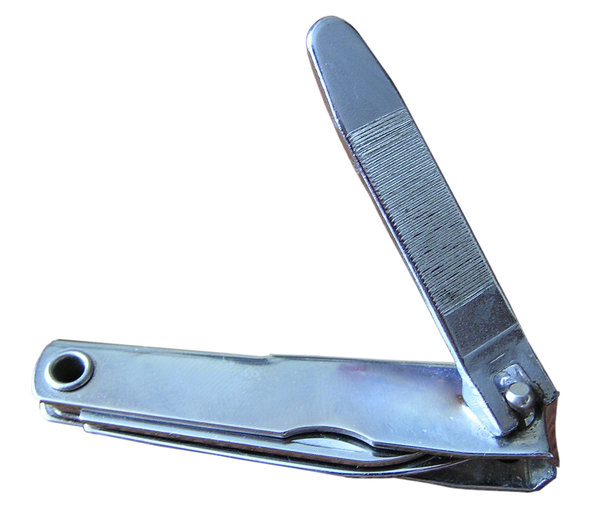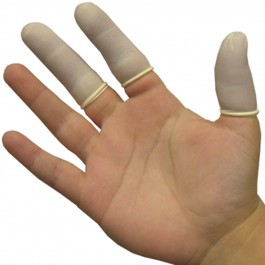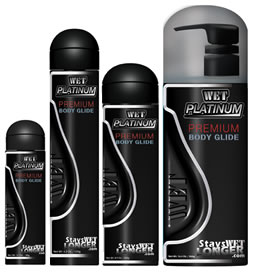Manual sex. The last vestige for folks who hate protected sex. I mean, you can’t get sick from a handjob, can you?
Actually, manual sex has its own risks, just like oral, anal, or even vaginal sex.
Certain STDs only need contact to be passed from one person to another, which means that they can be passed along from manual sex. While it may be rare, it could certainly be a concern. HPV, herpes, bacterial vaginosis, chlamydia, and syphilis are on the short list of diseases that can be spread via manual sex, but they aren’t the only culprits.
In fact, the biggest risk isn’t an STD or accidental pregnancy. It doesn’t matter who you are or who you’re boning, you could be at risk for infection.
Vaginal Fingering

The vagina, as we have mentioned many times, is full of sensitive mucous membranes. Cutting your fingernails is a must, but also make sure to use an emery board to file them down. Sometimes nails can be rough after they’ve been cut. A fingernail brush can keep them clean underneath, and washing them first with antibacterial soap can also help cut down on the amount of bacteria you’re introducing to the vagina’s natural flora.
A sure way to prevent this is by using a barrier on your hands. Latex or nitrile gloves (made from the same material as the FC2) can help if you don’t know your partner’s status, or if they’re particularly sensitive to infections, like UTIs. PVC gloves have pores which allow the passage of microbes, and should not be used as a safer sex barrier.
If gloves are uncomfortable, paramedics also use finger cots, which are also called finger condoms, when dealing

with certain types of wounds. These are latex or nitrile barriers that can be rolled down a single finger and keep you safe and dry. These are a great idea if you want to finger someone but have a wound on your hand. If you have long fingernails, push a cotton ball to the tip of the finger condom to keep the condom from ripping.
If you’re afraid of having a cut on your hands, lemon juice is a great way to know. Rub a slice of lemon on your hands and if it stings, there’s a good chance you might have a tiny cut that could be susceptible to infection.
Remember, too, that there’s a very small chance that a hand that has touched pre-cum or semen could impregnate someone who has the ability to get pregnant. If this is a concern for you, make sure the hands involved are washed.
Anal Fingering

The hershey highway is the best route to encounter bacteria. Even if your partner is clean of STDs, the amount of bacteria in their rear-ia can still be problematic. Even if you’ve washed, even if you’ve douched, sometimes there’s just nothing you can do to get rid of that potentially very harmful bacteria.
The other issue with the anus, as we’ve hashed over time and again, is that it’s very susceptible to tears. And tears are susceptible to infection, particularly when there are lots of harmful microbes floating around.
Because of this, we recommend latex or nitrile gloves for all anal contact. Even if you and your partner trust one another, even if STDs aren’t a risk, a barrier is the safest and easiest way to prevent infection.
Handjobs

Because of the lack of mucous membranes, it may seem like handjobs are completely without the risk. But
remember, if you’re giving a handjob without a condom, you’re still coming in contact with pre-cum and semen. And if you’re uncertain of your partner’s STD status, you could still be putting yourself at risk.
If you’re nervous about your partner’s status, gloves are perfectly acceptable to use here as well. Also, don’t be afraid to ask them to wear a condom. It might not be the most satisfying handjob they’ve ever had, but a little WET Platinum on the inside of a Kimono MicroThin and they won’t even know the difference.
Fisting
 Fisting can be a dangerous, but sexy, activity. The vagina and anus are both at risk of tearing when something so much larger than its used to is shoved into it.
Fisting can be a dangerous, but sexy, activity. The vagina and anus are both at risk of tearing when something so much larger than its used to is shoved into it.
Like any type of size training, we don’t suggest rushing into things immediately. Take lots of time, lots of lube, and work your way up to the fist’s size.
Start with just a finger. It may seem tiny at first, but chances are, when it’s shoved somewhere unexpected, it will feel a lot larger than you think. And since you could be putting yourself at the risk of tears, it’s a great idea to wear hand protection (either finger cots or gloves) to make sure you aren’t at a risk for infection.
For most anal stuff, we strongly recommend silicone-based lube. But for fisting, the non-absorbant quality of silicone is even more important. We just love WET Platinum for fisting because it lasts and lasts.
Remember, as with any other type of sex, listening to your body is extremely important. If it begins to hurt, it’s a good sign that it’s not going to stop hurting. Pain is your body’s way of telling you to stop, so unless pain is what you’re going for, it may be time to stop and try again later.
